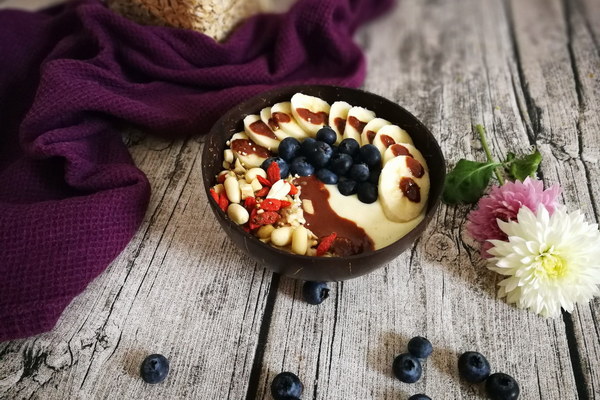Harmonizing Liver Qi Stagnation A Guide to Nourishing Yin and Softening the Liver
In traditional Chinese medicine (TCM), the concept of liver qi stagnation is a common disorder that can lead to a variety of health issues. This condition occurs when the liver's function of moving and regulating qi (vital energy) is impaired, resulting in the accumulation of qi and the subsequent imbalance of the body's systems. To address this imbalance, TCM practitioners often recommend a therapeutic approach that focuses on nourishing Yin and softening the liver. This article explores the principles behind this treatment method and provides practical advice on how to implement it in daily life.
Understanding Liver Qi Stagnation
Liver qi stagnation can manifest in various ways, including emotional disturbances, physical symptoms, and mental health issues. Common symptoms include irritability, mood swings, anxiety, depression, and even physical pain such as headaches, chest tightness, and abdominal discomfort. The root cause of this stagnation is often linked to stress, anger, or emotional suppression, which can disrupt the normal flow of liver qi.
The Importance of Nourishing Yin and Softening the Liver
In TCM, the liver is closely associated with the Wood element, which represents growth, flexibility, and movement. When the liver's energy becomes stagnant, it can lead to an excess of Yang, causing heat and inflammation. To counteract this, it's essential to nourish Yin and soften the liver to restore balance.

Nourishing Yin involves replenishing the body's fluid reserves, which are crucial for maintaining the liver's health. Yin is the cooling, moisturizing, and nourishing aspect of the body, and it's associated with the elements of water and metal. Foods and herbs that are considered Yin-nourishing include goji berries, black sesame seeds, seaweed, and schisandra.
Softening the liver aims to improve the liver's ability to move and regulate qi. This is often achieved by using herbs and dietary adjustments that can help to relax the liver and reduce the accumulation of qi. Commonly used herbs for this purpose include bupleurum, chrysanthemum, and saffron.
Implementing TCM Treatments for Liver Qi Stagnation
Here are some practical steps to implement TCM treatments for liver qi stagnation:
1. Dietary Adjustments: Incorporate Yin-nourishing foods into your diet, such as soups, stews, and salads made with goji berries, black sesame seeds, and seaweed. Avoid overly spicy, greasy, and fried foods, as they can exacerbate liver qi stagnation.
2. Herbal Remedies: Consult with a TCM practitioner to determine the best herbal formula for your specific needs. Common herbal formulas for liver qi stagnation include Xiang Sha Yang Wei Wan and Xiao Yao San.
3. Meditation and Breathing Exercises: Practices such as tai chi, qigong, and deep breathing exercises can help to calm the mind, reduce stress, and promote the smooth flow of liver qi.
4. Emotional Release: Find healthy ways to express your emotions, such as journaling, art therapy, or talking with a trusted friend or therapist.
5. Regular Acupuncture: Acupuncture can help to balance the liver and improve the flow of qi. It's often used in conjunction with herbal remedies and lifestyle changes.
6. Stress Management: Since stress can contribute to liver qi stagnation, it's important to develop effective stress management techniques, such as mindfulness, yoga, or progressive muscle relaxation.
By focusing on nourishing Yin and softening the liver, individuals with liver qi stagnation can achieve a greater sense of balance and well-being. It's important to work with a TCM practitioner to tailor your treatment plan to your unique needs, ensuring that you receive the most effective and personalized care.









